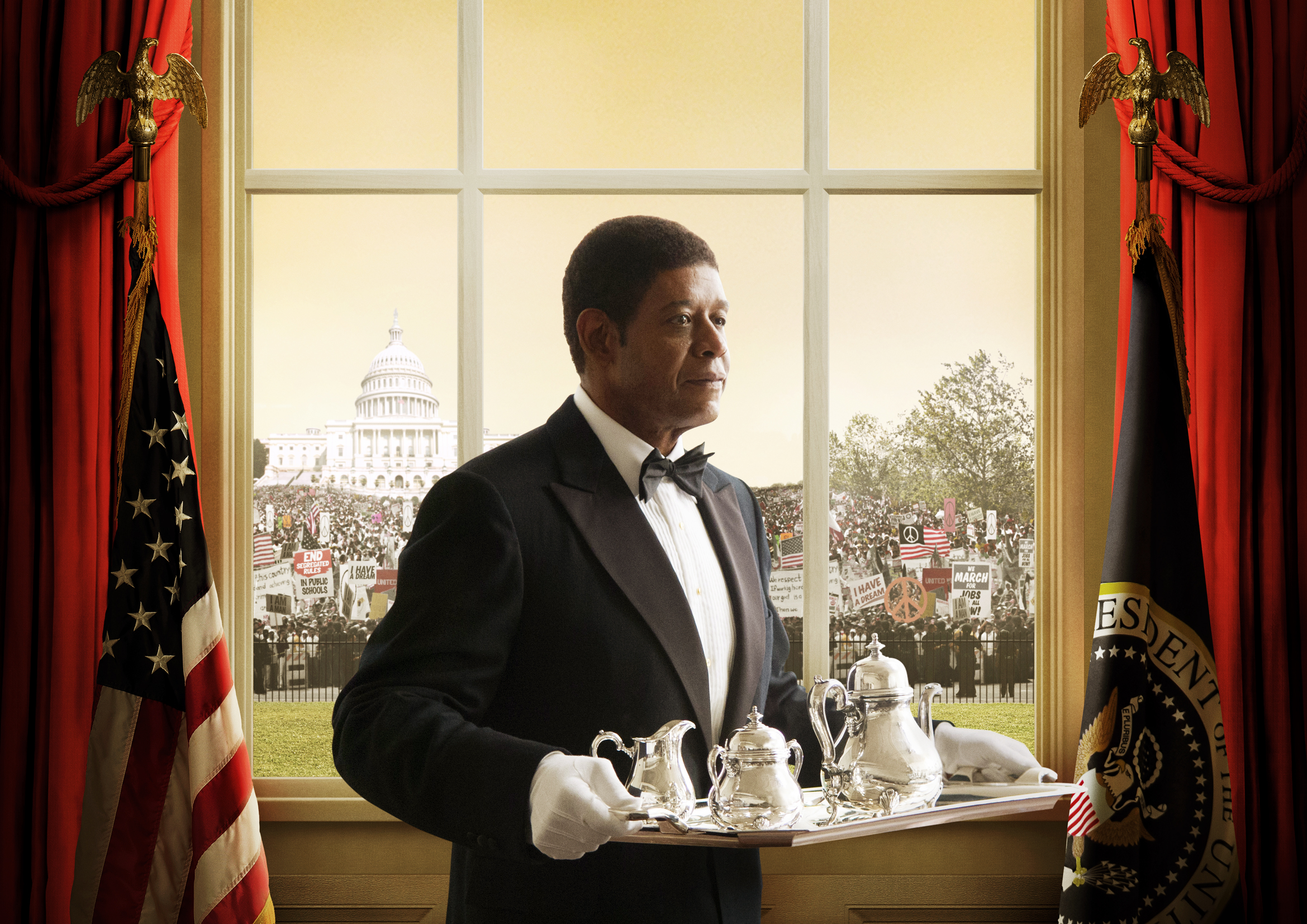The Butler serves the same purpose as Forrest Gump: it tells the story of America through the eyes of one person. In this case, the point of view is of an African-American Butler for the President of the United States. Anchored by strong performances and a unique perspective, Lee Daniel’s (the Director) The Butler is a fine piece of Americana that showcases the arc of race relations in the United States from 1920 to today. Oh yeah, and get ready to see Oprah at the Oscars again.
The butler in question is Cecil Gaines (Forest Whitaker). We see his start on the plantation and his progression to the White House because of his acumen for being professional and apolitical. From Eisenhower to Reagan, Cecil serves his country proudly through hard work and dignified elegance alongside fellow butlers Carter Wilson (Cuba Gooding Jr.) and James Holloway (Lenny Kravitz). Cecil’s dedication to his work generates friction at home on two fronts: his wife Gloria (Oprah Winfrey) falls into an alcohol addiction and his son Louis (David Oyelowo) becomes his dad’s political doppelgänger, joining Martin Luther King and Malcolm X’s movements.
The historical portrayals create mixed results in The Butler. Stunt casting is used for each President. None is really great (Liev Schrieber as Lyndon Johnson gets the best moment) and some are downright putrid (John Cusack will not be playing Nixon again soon). However, when the focus is on Cecil’s life, the historic resonance has more force. The plantation existence is brough back with horrifying consequences, and the sit-in especially gets a really nice showcase here. I don’t know if Louis was in both civil right’s movements, but seeing the juxtaposition of civil disobedience versus black power and how it affected Cecil gives a nice view into what must have been going on in most of the black homes in the 60s-80s.
The family dynamic is what makes The Butler special. Unlike The Help, which focuses mostly on the white world, the Butler’s focus is entirely in the Gaines household. The conflict between father and son is refreshingly complicated: Cecil believes that diligent service will cause the white leaders to lower their guard and change their minds over time, while Louis believes in a more active and public displays will cause minds to change more quickly. Neither is really wrong; both methods have their merits, and both men are blinded by their personal causes. This stand-off forces Gloria to take sides between her husband and her son; the weight of these decisions weighs on Gloria, but there is a strength in her that she gains as she grows in age and wisdom. The uneasy tension between Louis, Gloria, and Cecil keeps The Butler grounded emotionally and makes the payoffs especially rewarding.
The Weinstein Company is positioning The Butler to be a big Oscar contender, and it should garner at least a few nominations in the acting field. Forest Whitaker can play regal in his sleep; what makes Cecil so compelling is the drive underneath his actions and the thought going through every word he says. Every bit his equal and maybe eclipsing him is Oprah Winfrey, who reminds everyone just how good of an actress she can be. Gloria could easily have become the shrill housewife, but Winfrey gives Gloria many dimensions that after about half an hour I forgot Gloria was played by one of the most powerful media moguls in the world. David Oyelowo has a similar makeup as Whitaker when it comes to the strong silent type, and holds his own when on-screen with the other Oscar Nominees. Cuba Gooding Jr., Lenny Kravitz, and Vanessa Redgrave do good work in supporting roles as well.
And the 2013 Oscar race is underway. Despite the near preachiness of the story, The Butler is a powerful story of a family in crisis during a time when the nation was in racial crisis. I hope it gets remembered at the end of the year, and I also hope we get to see more of Oprah on-screen, so you get more Oprah, you get more Oprah….EVERYONE GETS MORE OPRAH!!!

